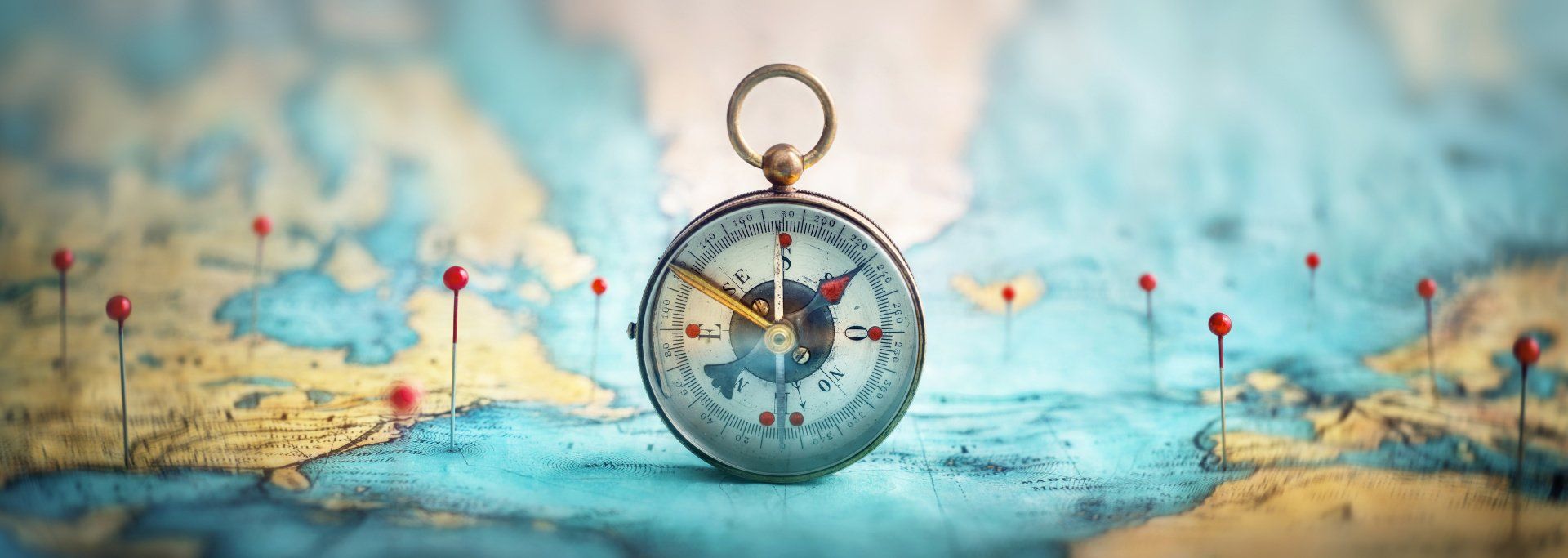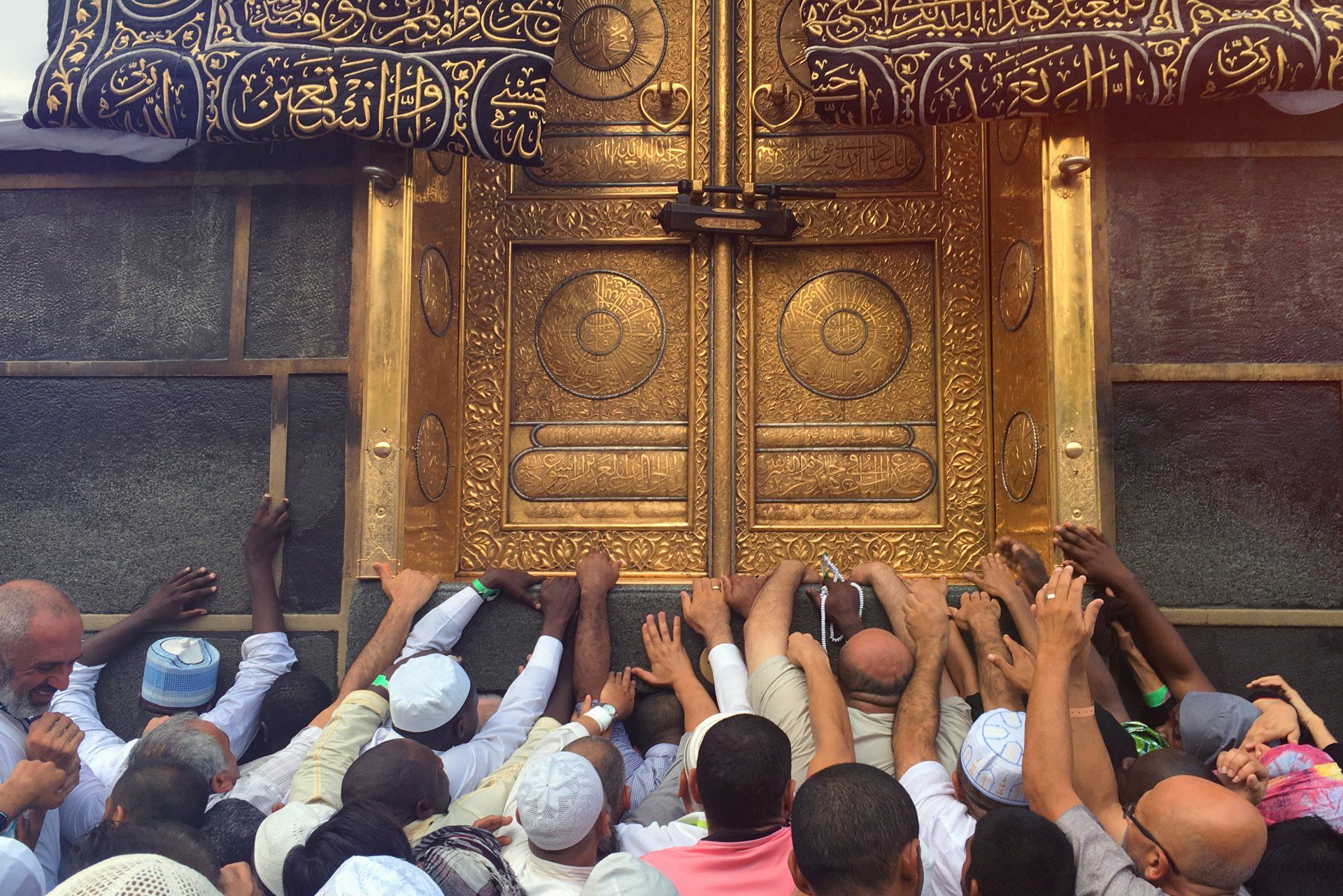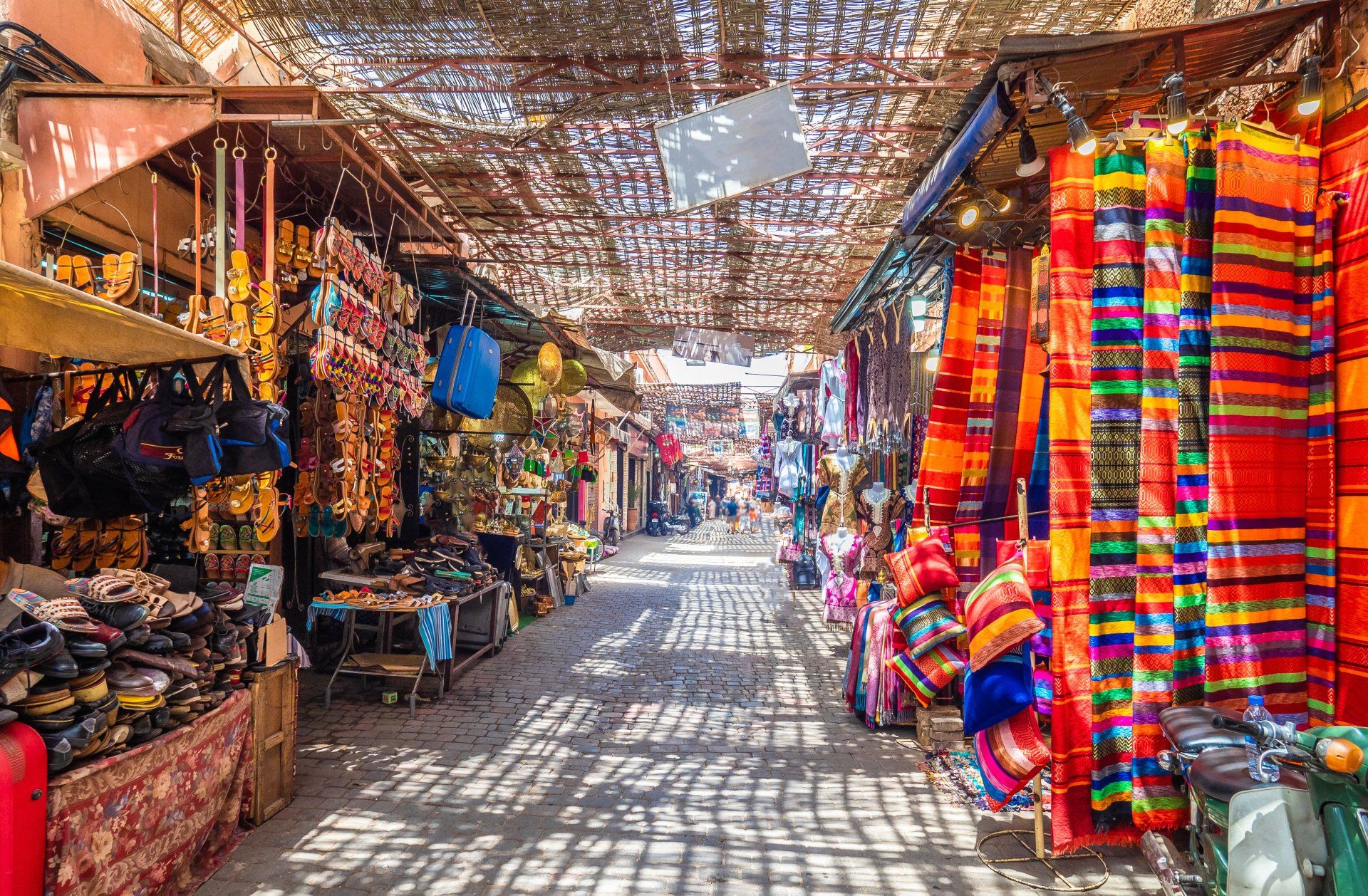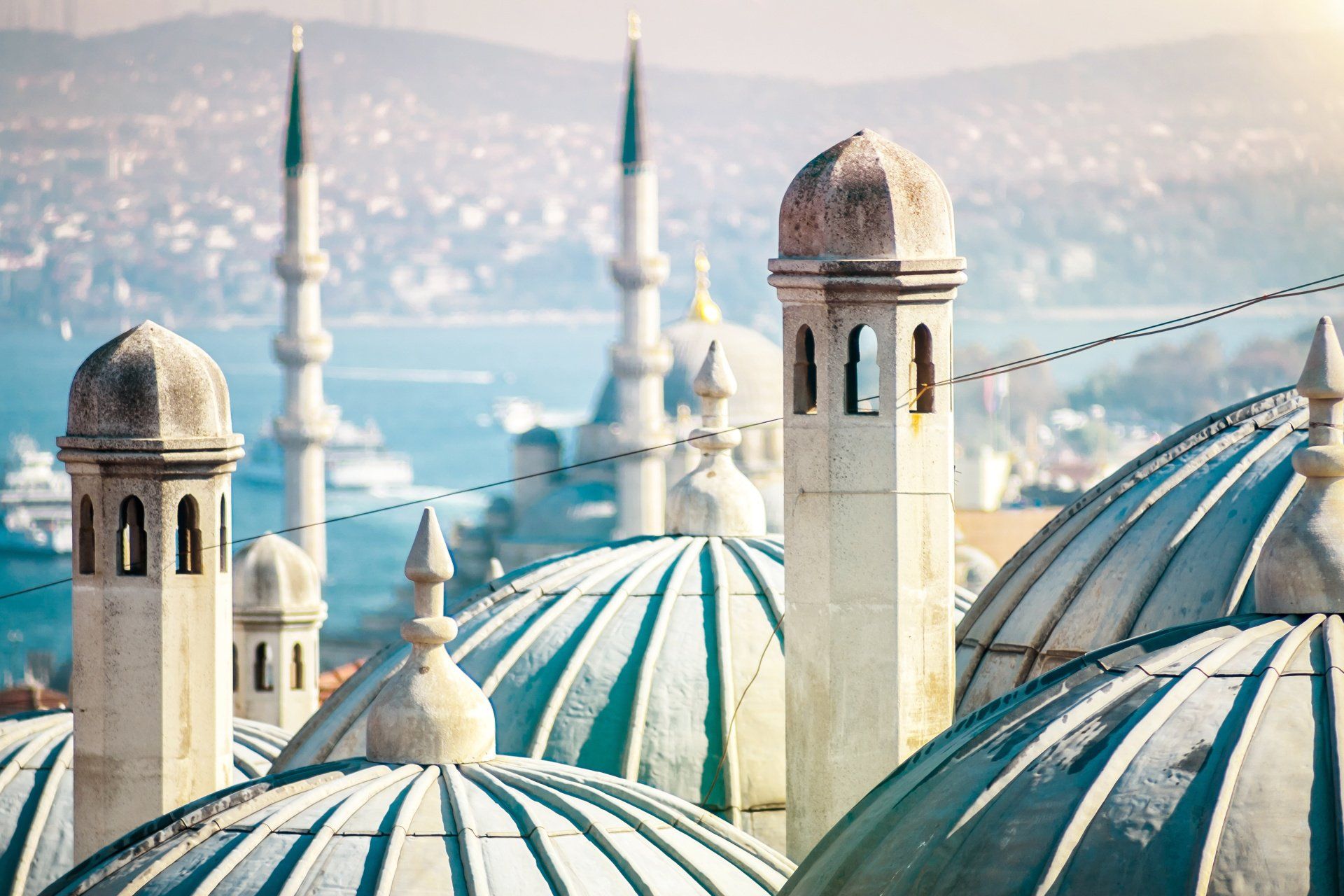Amina Bagus-du Toit is a graduate of the University of Cape Town. She spends her days filling the role of Headmistress at the prestigious Darun Na’im Academy in Cape Town, South Africa. She has a passion for Islamic history, travel and refugee work.
1-877-HALAL-WW (+1-877-425-2599)
The Conscious Traveler

“My soul is from elsewhere, I’m sure of that, and I intend to end up there.” [1]
Everything a Muslim does should be with conviction and motivation. Every action must have an intention and that intention must be a means of making us better and improving our relationship with our Creator. The Prophet SAW said: "Actions are according to intentions, and everyone will get what was intended.” [2] A believer spends their entire life performing actions that will draw them closer to their Creator and earn them paradise. They live in this world with consciousness, aware of themselves, others and their surroundings.
These actions that a believer performs are subject to certain conditions to ensure their acceptance:
1. Intention for the sake of Allah
2. Performed in a manner prescribed by the Quran and the sunnah of our beloved Prophet PBUH
These requirements will ensure that every action is a halal one that will benefit not only the doer but others too.
So, let us get back to travelling… where does travelling fit into all of this?
Travelling is fundamental to us as human beings. Since man was created and sent to earth they have been on the move, exploring, learning, trading and growing. Through travel scholars, saints, mystics and prophets reached their greatest heights. Therefore, it is safe to say that the purpose of travel is to contemplate, learn, and earn a livelihood. [3]
Our tradition is filled with stories of prophets, saints, scholars and traders, who left their lands of birth and travelled to distant, foreign and often hostile lands to establish communities.
They serve to inspire and remind us that it is it is when one leaves the comfort of ones home and embarks on a journey, then only do we truly grow, develop and become better.
Take the Haj for example, it is the 5th pillar of our faith. A pillar that completes our belief and affirms us as Muslims. A pillar without which our faith would be incomplete.
Haj means to set out… when Haj is spoken of, thoughts of great preparation, sacrifice, excitement, sadness and transformation comes to mind.
Haj is the ultimate journey that has, according to Islamic tradition been performed , since the time of Adam PBUH.
My essay is not about the Haj, it is about being a conscious traveler, however one cannot mention travelling in the life of a Muslim, without referring to the epic journey of the Haj as it is the gold standard of travel, bestowing upon the hajji the hallmarks of a journey of a lifetime.
The messenger PBUH said: “Be in the world as a traveler or stranger” [4], reminding Muslims that although the world is a temporary abode, the appreciation of beauty still falls as an obligation upon every Muslim: to seek the world in contentment and to appreciate the bounty of God in all things big and small. [5]
Steps to take before a journey:
1. Establish an Intention for travel:
To please Allah and earn His rewards, thereby automatically making the journey halal as no intent for Allah’s pleasure can be assigned to a haram act.
2. What is the Purpose of travel?
a. Spiritual upliftment:
Islam encourages travel, not only for Haj but to explore the earth Allah created and to wonder at His signs.
Believers are commanded in many places in the Quran to leave their homes and ponder Allah’s greatness; to strive in Allah’s way and to travel to learn from the people of the past.
Say, [O Muhammad], "Travel through the land and observe how He began creation. Then Allah will produce the final creation. Indeed Allah , over all things, is competent." [6]
b. Historical lessons:
Do you know that Allah specifically encourages us to travel to visit historical monuments and sites? Allah says: “Travel throughout the land and see the fate of the deniers.” [7]
Allah also raises the question: “Have they not seen how many generations We destroyed before them which We had established upon the earth as We have not established you? And We sent [rain from] the sky upon them in showers and made rivers flow beneath them; then We destroyed them for their sins and brought forth after them a generation of others.” [8]
These verses are clear directives to learn from our past. To understand the mistakes made by civilizations before and to contemplate the fragility of life.
c. Trade:
Our tradition teaches us that travelling for trade is permissible and that Islam spread far and wide as a result of this trade.
The expanse of Islamic trade had a direct result on the spread of Islam. Muslim traders took their faith to West Africa where Islam spread quickly throughout the region. Areas in the far East such as Malaysia and Indonesia also became Muslim through Muslim traders and Sufis. Over time, large Muslim populations grew in other regions including India, China, and Spain as a result of commerce and trade. [9]
Interesting Facts about Trade and Commerce in the Islamic Golden Age:
· Islamic coins have been found by archeologists as far as Scandinavia, Britain, and China.
· Merchants were respected in the Islamic world for their integrity and honesty
· Slaves captured in conquest or purchased in slave markets contributed greatly to the economy
· The vast expanse of Islamic trade allowed for the cultural exchange of art, science, food, and clothing throughout Asia, Africa, and Europe.
· The Quran served to guide many of the merchants requiring them to deal fairly with one another and to not charge interest on loans. [10]
The Holy Quran contains as many as 1400 verses referring to economic issues, much more than any other holy book. The principles and guidelines given in the Quran are as relevant in contemporary times as they were a thousand years back. [11]
a. Strengthening family ties:
Travelling distances to meet ones family and strengthen the bonds is encouraged.
b. Propagate Islam and for knowledge:
“Traveling is also an important Sunnah in Islam as the Prophet encouraged his followers to seek knowledge even as far away as China, indicating that knowledge is borderless and traveling is a good way to expand the horizons of knowledge and experience.” [12]
The lives of our pious predecessors are filled with stories of their travel to distant lands for the sole purpose of learning one hadith.
There is a reason for every Muslim to travel besides Haj, as is evident from the list above. Travel has been an essential part of our tradition and history. Travel as we know is a form of worship, if done according to Islamic guidelines and with everything in Islam we should take guidance from the best and most beautiful example in the life of our beloved Messenger PBUH and his companions RA.
So to end off my essay on being a conscious traveler, I feel it necessary to mention a few etiquettes of travel as established from the sunnah of our blessed Messenger PBUH, and taken from the book of Etiquettes of travel, Riyad as-Salihin: [13]
1. The preference of setting off on a Journey on Thursday in the Early part of the Day
2. Travel in a Group and appoint a Leader
3. Be helpful to fellow travelers
4. Recite prayers for traveling
5. Leave sufficient provisions for ones family
6. Put your affairs in order before embarking on your journey
7. Bid farewell to ones family and mend relationships
8. Buy gifts for loved ones
Abu Hurairah reported that the Messenger of Allah said: “Three supplications are answered without doubt – the supplication of the oppressed, the supplication of the traveler, and the supplication of the parent for his son.” [14]
From this hadith it is clear that the traveler holds a high status in Islam and the act of travel itself is praiseworthy and recommended. So whatever the reason for travel, one must ensure to observe the etiquettes and requirements of travel to gain Allah’s pleasure and blessings.
The Conscious traveler is an ambassador for their faith. Leaving the people they meet on their sojourn uplifted and enriched and the places they visit enhanced.
Footnotes:
1. Moulana Muhammad Jalalludin Rumi
2. Bukhari and Muslim
3. Travelling in Islam, Islam El Shazly
4. Bukhari
5. https://aboutislam.net/reading-islam/understanding-islam/traveling-the-world-as-a-new-muslim/
6. Quran 29:20
7. Quran 6:11
8. Quran 6:6
9. https://www.ducksters.com/history/islam/trade_and_commerce.php
10. https://www.ducksters.com/history/islam/trade_and_commerce.php
11. A Study on the Influence of Islamic Thought on Global Commerce and Trade- Shouvik Sanyal
12. https://aboutislam.net/reading-islam/understanding-islam/traveling-the-world-as-a-new-muslim/
13. Riyad as-Salihin, Etiquettes of Travel
14. Tirmidhi, Abu Dawud












